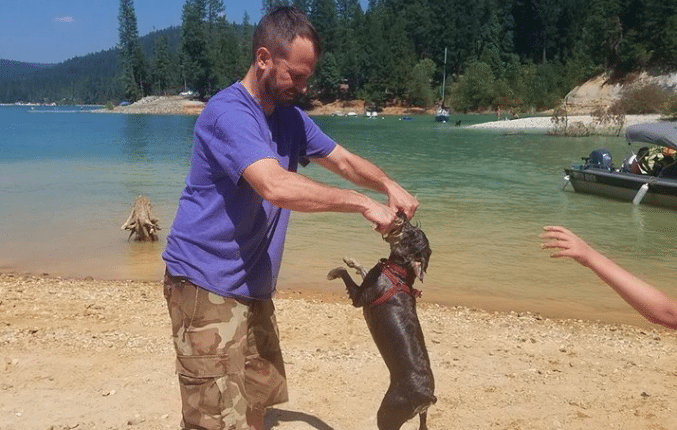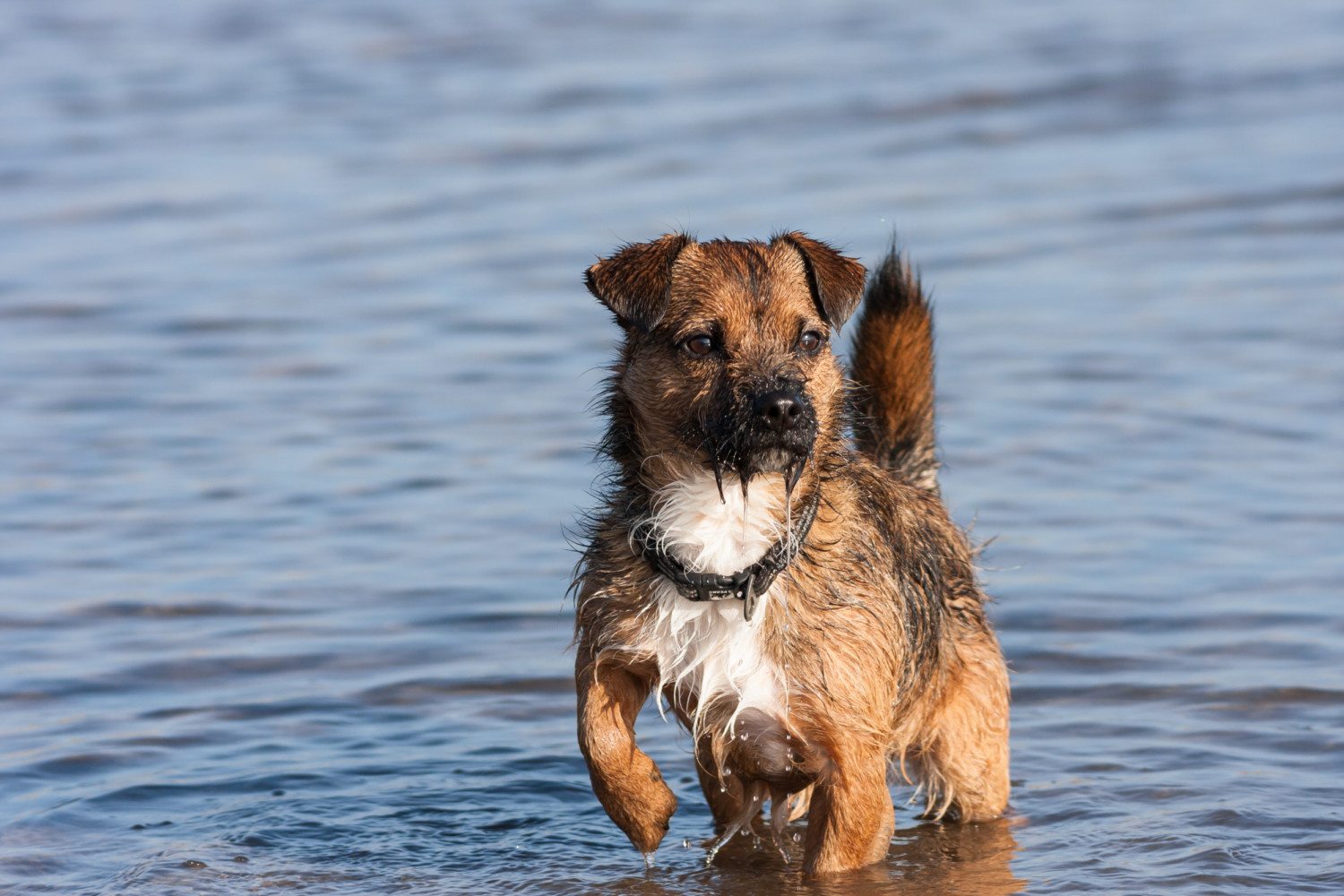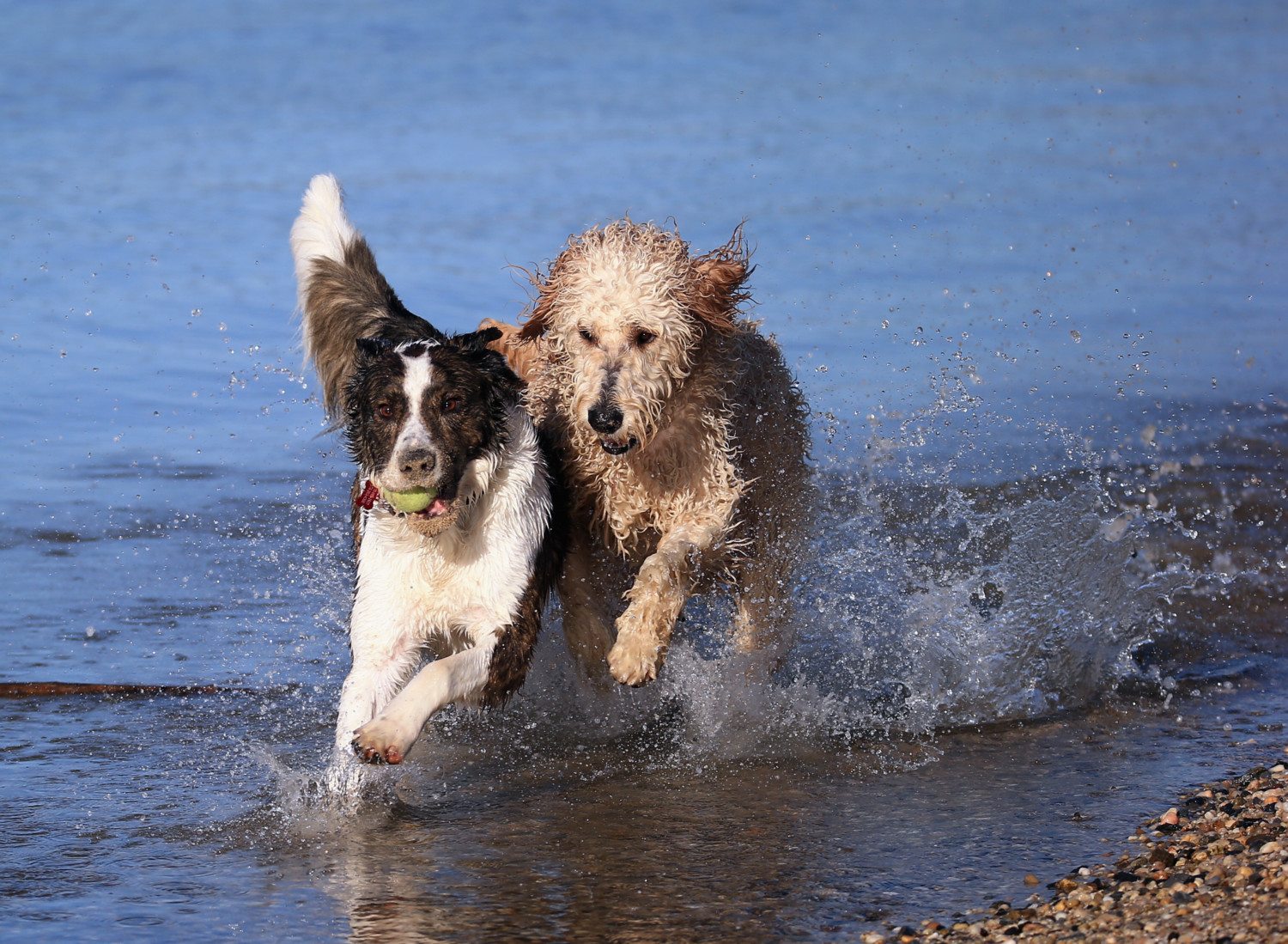After their dog died, this family is warning others about the hidden danger of water intoxication

It wasn’t even a year ago that Jen Walsh spent the day at the lake with her family and 2-year-old Schnauzer, Hanz. It was a typical summer day — until it turned tragic.
Hanz enjoyed his usual game of fetch: Walsh would throw a stick in the water and he would run to retrieve it. Like always, Hanz would return again and again with this stick in his mouth, eager to continue playing.
It wasn’t until Hanz had run in and out of the lake more than 20 times over the course of an hour and a half that Walsh realized something was wrong with him.
On his last jog back from the lake, Hanz didn’t shake off water like he usually did. A few minutes later he slumped to the ground.
“He Took In Too Much Water”
Walsh said in a Facebook post that the dog’s condition quickly took a turn for the worse. The family rushed him to the veterinarian and even administered CPR to keep him alive. By the time they reached the vet, Hanz was rushed into emergency care. But Walsh said it was too late: “He took in too much water.”
Less than an hour after noticing symptoms, Walsh said Hanz died of water intoxication.

What Is Water Intoxication In Dogs?
Water intoxication, also known as hyponatremia, in dogs is relatively uncommon. But it something to be on the lookout for if your dog spends a lot of time swimming or playing in water. Pets that drink or bite at the water while playing in it are especially susceptible to water intoxication, including those that unintentionally ingest water while diving for a toy or stick.
Dogs that enjoy drinking from a garden hose or sprinkler should also be monitored.
Be vigilant if your dogs love water…
Water Intoxication: Too Much of a Good Thing https://t.co/1W7120fZLI via @mercola— SMYLEE PETS (@SMYLEEPETS) June 23, 2017
Symptoms of water intoxication include:
- nausea
- vomiting
- lethargy
- abdominal distention
- ataxia (loss of balance)
- weakness
- coma
- seizures
- hypothermia
- bradycardia (low heart rate)
If your dog has been playing in water and shows any symptoms of hyponatremia, take them to the vet or an emergency animal hospital immediately.
Do you have a water baby? Please be aware of the symptoms of water intoxication, it can be life threatening! #dogs #dogsoftwitter #DogFirstAid #water #summer #safetyfirst pic.twitter.com/ujqf7v4iD9
— DogFirstAidSouthWales (@DFASouthWales) June 26, 2018
Can Water Toxicity Be Treated?
Treatment of water intoxication typically involves intravenous (IV) electrolytes, diuretics and medications to reduce brain swelling. But it should be noted that the condition can progress quickly. While some dogs have recovered after veterinary care, sadly many, like Hanz, do not.
RELATED: 7 Foods You Should Absolutely Never Feed Your Dog
Are Certain Dogs More Susceptible?
Any dog that is exposed to water runs the risk of hyponatremia. But it’s important to note that small dogs are more inclined to suffer from the condition. That’s because it doesn’t take a lot of water for a small dog to be affected by water intoxication.

Lower body fat is also a factor that contributes to quick water intoxication because the dog has less tissue to absorb excess water. Hyperactive dogs and/or those that are overly eager to engage in water activities also run a higher risk of hyponatremia.
How To Keep Your Pooch Safe Around Water
It’s important to continually monitor your dog’s activities when they are playing in or consuming water. Set a time limit in order to keep your pet’s water consumption and exposure in check.
Make sure to also keep your furry friends hydrated in order to avoid giving them the opportunity to seek water sources — and therefore drink too much — on their own.

And if your dog loves to play fetch around water, consider purchasing flat toys for your pet to retrieve — they absorb less water.
Because if there’s anything dog lovers can take away from this tragic story, it’s that water safety is important for pooches, too.

